

|
 |
Hard to be a God AKA Trudno byt bogom (Blu-ray)
[Blu-ray]
Blu-ray ALL - United Kingdom - Arrow Films Review written by and copyright: Paul Lewis (16th September 2015). |
|
The Film
  Hard to be a God (Aleksey German, 2013) Hard to be a God (Aleksey German, 2013)
On a distant planet that contains a society resembling that on Earth – but eight hundred years behind ours – a group of Earth scientists have over a number of years been tasked with what is essentially a participant observation exercise: observing from within the development of this society during the period which roughly resembles Earth’s Renaissance era. However, the alien society – specifically the Kingdom of Arkanar – is heading in a very different direction to that which Earth took: during its Renaissance, Arkanar is experiencing a purge of intellectuals and artists (‘thinkers, smartarses, bookworms and talented artisans’, the film’s narrator tells us), who are executed in most vicious ways under the orders of the leader of this society, Don Reba (Aleksandr Chutko), thus leading to Arkanar being unable to progress beyond the era which finds its rough corollary in Earth’s feudal Middle Ages. Reba uses his militia, known as the Greys, to gather and murder ‘bookworms’. At least one of the Earth scientists, masquerading as Don Rumata (Leonid Yarmolnik) – a nobleman who is claimed to have been born from the mouth of a pagan deity – secretly hides ‘bookworms’ within the hamlet over which he presides, allowing them passage into the neighbouring province of Irukan. In the middle of this, Rumata seeks to identify the fate of a purportedly great doctor, Budakh, who has fallen victim to Don Reba’s regime and has been imprisoned by the Greys. When the Greys invade Rumata’s hamlet, following Reba’s declaration of his disbelief that Rumata is who he claims to be, Rumata is also taken prisoner. Later, he is freed along with Budakh – but soon realises that the man who he believes to be Budakh is in fact an impostor. Rumata returns to Reba’s keep to search for Budakh and rescues the real Budakh, along with Rumata’s friend Baron Pampa. However, Pampa is killed by Reba’s men. Budakh, Rumata soon realises, is also far from the great intellectual that Rumata believed him to be. 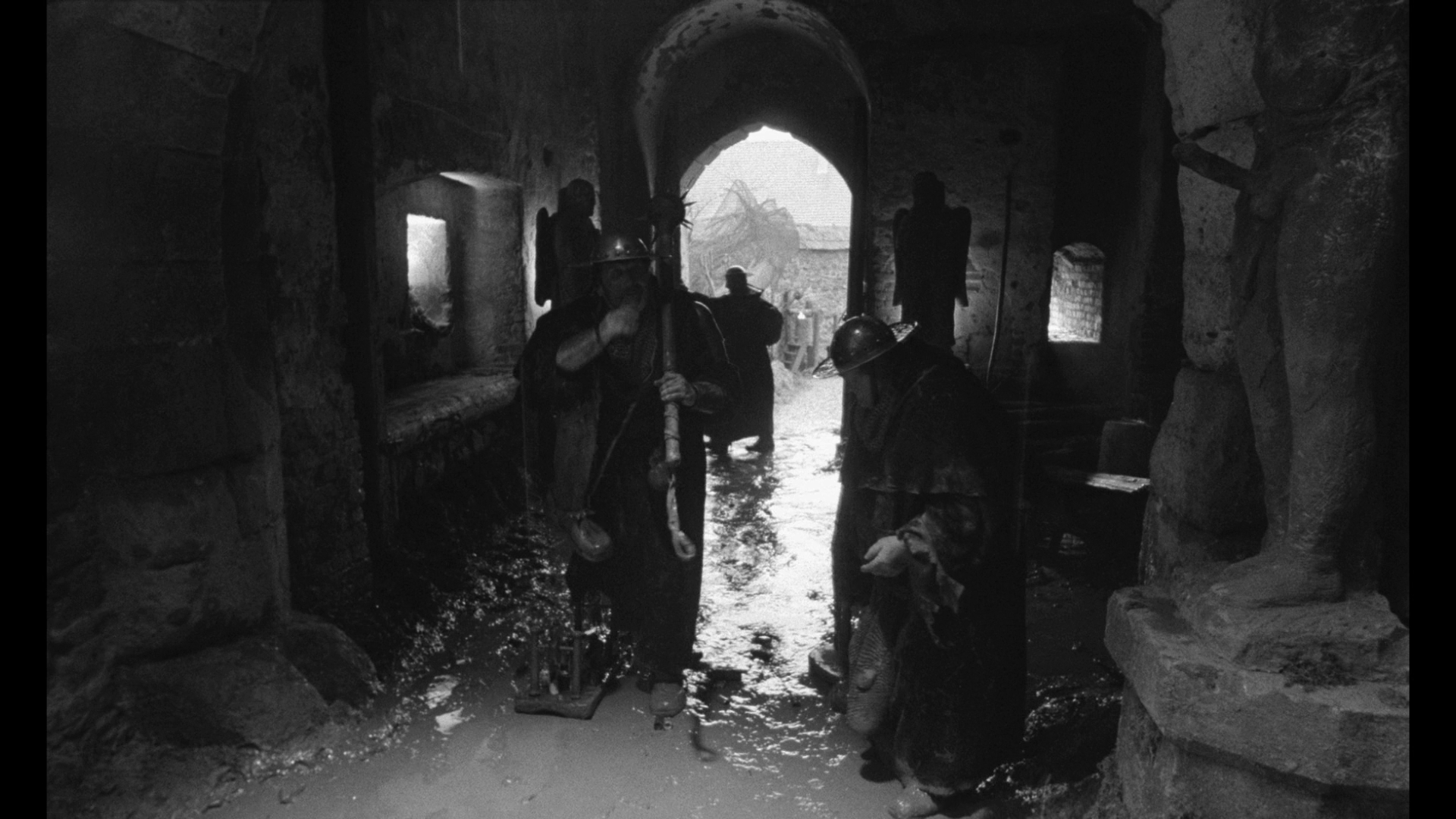 When Reba’s militia lay siege to Rumata’s hamlet and kill Rumata’s lover Ari, who is pregnant with Rumata’s child, Rumata breaks with the principle of non-interference on which the Earth scientists’ mission has been based, staging an uprising that leads to a slaughter on both sides. Following the massacre of Arkanar, one of the other Earth scientists – leading a band of nomadic locals – discovers Rumata alive and offers to allow him to return to Earth. Rumata refuses, telling the other Earthman simply that it is ‘hard to be a God’. When Reba’s militia lay siege to Rumata’s hamlet and kill Rumata’s lover Ari, who is pregnant with Rumata’s child, Rumata breaks with the principle of non-interference on which the Earth scientists’ mission has been based, staging an uprising that leads to a slaughter on both sides. Following the massacre of Arkanar, one of the other Earth scientists – leading a band of nomadic locals – discovers Rumata alive and offers to allow him to return to Earth. Rumata refuses, telling the other Earthman simply that it is ‘hard to be a God’.
Given its almost three hour running time, Hard to be a God’s narrative is deceptively simple, and described in such a way as above, Hard to be a God may be seen as like a particularly dirty, and brutal, episode of Star Trek: The Next Generation (CBS, 1987-94). Director Aleksei German’s previous films, beginning with The Seventh Companion in 1967, evidenced a preoccupation with Stalinist Russia, and whilst its otherworldly/historical setting marks it as outwardly different from the other pictures German made, Hard to be a God – like those other films – focuses on totalitarianism, using its setting to construct an allegory for Stalinism. (Or, as some critics have suggested, a bitter swipe at Putin’s Russia.) Shot over six years, beginning in 2000, with a post-production period of an equal length – and the film being completed by German’s immediate family following the director’s death in early 2013 – Hard to be a God has a fairly simple narrative that is presented in a deliberately meandering manner: the plot wanders, much as German’s camera persistently does. This is matched by the constant movement of the characters, particularly Don Rumata – their lazy, exhausted voices betraying their listlessness. The lack of direction of Arkanar infiltrates everything within the film, including its presentation, inspiring in the viewer the same sense of lethargy and numbness that seems to be the cornerstone of life in this otherworldly province. 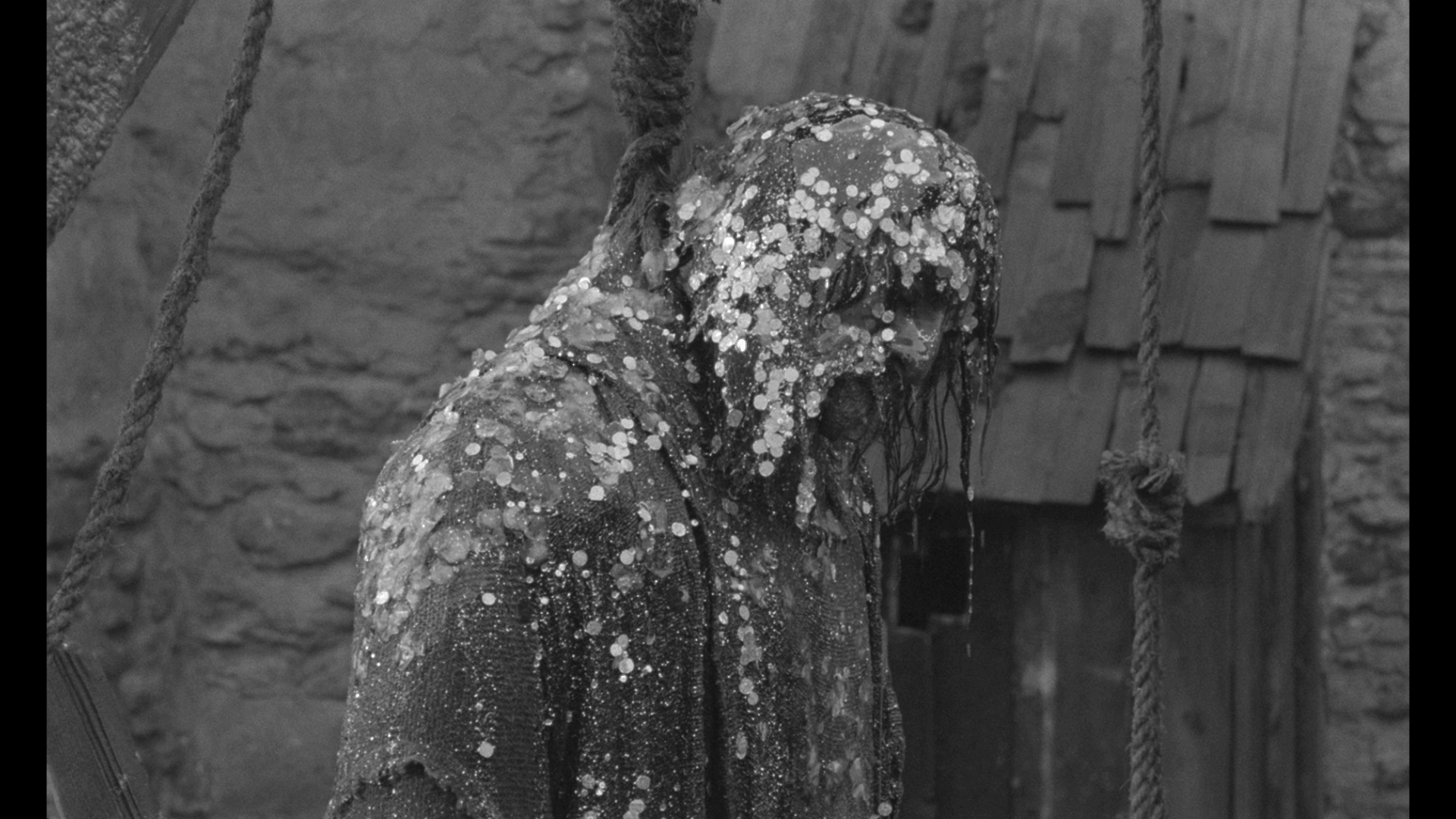 The film is based on the 1964 novel, of the same title, by Arkady and Boris Strugatsky, the authors of the 1971 book Roadside Picnic on which Andrei Tarkovsky’s Stalker (1979) was based. The Strugatskys’ novel was part of their ‘Noon Universe’ series, a group of books – beginning with Noon: 22nd Century (published in 1961) – whose themes are often compared to the utopian society that is depicted in the roughly contemporaneous Star Trek (CBS, 1966-9) television series. In the Noon Universe novels, human agents are repeatedly depicted as observers embedded in alien societies (this is the case in Hard to be a God) or, in some instances, ‘progressors’ who are embedded in less advanced alien civilisations in order to help these civilisations to develop in a way that the human observers believe to be ‘correct’. The novel Hard to be a God had already been adapted by German filmmaker Peter Fleischmann in 1989, as Es ist nicht leicht ein Gott zu sein, though Aleksei German had apparently considered delivering an adaptation of the Strugatskys’ book as his directorial debut during the 1960s. The film is based on the 1964 novel, of the same title, by Arkady and Boris Strugatsky, the authors of the 1971 book Roadside Picnic on which Andrei Tarkovsky’s Stalker (1979) was based. The Strugatskys’ novel was part of their ‘Noon Universe’ series, a group of books – beginning with Noon: 22nd Century (published in 1961) – whose themes are often compared to the utopian society that is depicted in the roughly contemporaneous Star Trek (CBS, 1966-9) television series. In the Noon Universe novels, human agents are repeatedly depicted as observers embedded in alien societies (this is the case in Hard to be a God) or, in some instances, ‘progressors’ who are embedded in less advanced alien civilisations in order to help these civilisations to develop in a way that the human observers believe to be ‘correct’. The novel Hard to be a God had already been adapted by German filmmaker Peter Fleischmann in 1989, as Es ist nicht leicht ein Gott zu sein, though Aleksei German had apparently considered delivering an adaptation of the Strugatskys’ book as his directorial debut during the 1960s.
The narrative of German’s adaptation of Hard to be a God is delivered in an impressionistic way: more important than any conventional sense of story is the utter misery within the Kingdom of Arkanar and the textures associated with it. The compositions are dominated with icons of the abject: decaying bodies strung up by their necks from jerry-rigged gibbets; the ground covered with mud that never dries owing to the seemingly perpetual rain; people pissing on other people’s boots; shit; snot being blown out of noses; a young boy using a stick to scoop some mud (or perhaps shit) from the arse of a corpse on a battlefield in an attempt to transfer it into the mouth of another corpse; dead animals; an eviscerated man, his guts spilling out of his abdominal cavity and his still-beating heart exposed; a donkey’s penis; more shit; characters spitting from one side of the frame to another; and, at the climax, blood that sprays from a wound over Rumata’s face and onto the camera lens, obscuring our view of the action. Arkanar, it seems, is defined by its association with the abject; Rumata, by contrast, declares that ‘A nobleman should be clean and fragrant’. Given the impossibility of remaining ‘clean and fragrant’ within Arkanar, his words have a deep irony and might also remind some viewers of the collector of the dead’s observation, in Monty Python and the Holy Grail (Terry Gilliam and Terry Jones, 1975), that Arthur must be a king because ‘he hasn’t got shit all over him’. 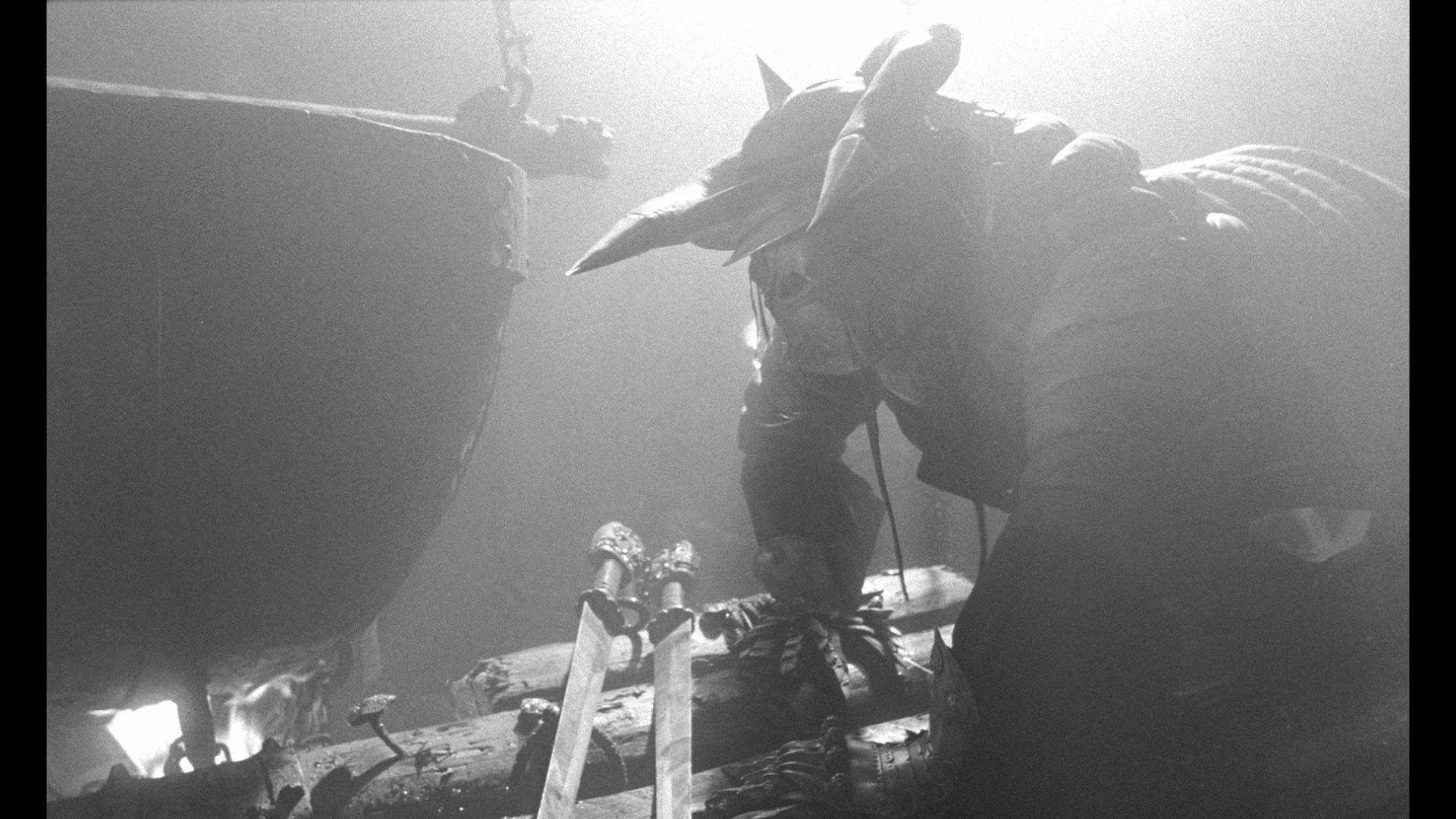 German strips away the science fiction trappings of the Strugatsky novel: there is little, other than the film’s opening narration (the inclusion of which was apparently resisted, at least initially, by German – according to the interview with his son that’s included on this disc) and a few very brief lines of dialogue, to allude to the Earth scientists’ mission or their lives away from Arkanar. ‘This is not the Earth’, the narrator intones over the film’s opening sequence, ‘It is another planet. Same as the Earth but about 800 years behind’. Within this context, it seems, Rumata (or rather, Anton, the scientist masquerading as Rumata) has to a greater extent ‘gone native’, apparently inspired with a sense of ennui at the failure of the society the Earth scientists have come to observe to progress into its Renaissance – which is held back by corrupt power structures, rampant anti-intellectualism and a deep-rooted cruelty of spirit. At the end of the film, as Rumata decides to take action against the corrupt Greys, he collects his sword and armour and mutters to himself, ‘Lord, stop me now. It’s as if it isn’t me’. German strips away the science fiction trappings of the Strugatsky novel: there is little, other than the film’s opening narration (the inclusion of which was apparently resisted, at least initially, by German – according to the interview with his son that’s included on this disc) and a few very brief lines of dialogue, to allude to the Earth scientists’ mission or their lives away from Arkanar. ‘This is not the Earth’, the narrator intones over the film’s opening sequence, ‘It is another planet. Same as the Earth but about 800 years behind’. Within this context, it seems, Rumata (or rather, Anton, the scientist masquerading as Rumata) has to a greater extent ‘gone native’, apparently inspired with a sense of ennui at the failure of the society the Earth scientists have come to observe to progress into its Renaissance – which is held back by corrupt power structures, rampant anti-intellectualism and a deep-rooted cruelty of spirit. At the end of the film, as Rumata decides to take action against the corrupt Greys, he collects his sword and armour and mutters to himself, ‘Lord, stop me now. It’s as if it isn’t me’.
Rumata’s frustration with Arkanar’s refusal to ‘progress’ has led him to a profound sense of helplessness. After ‘rescuing’ Budakh, Rumata asks the supposedly eminent doctor how he would alleviate the suffering in Arkanar: ‘And if you could give advice to a god [….] That wouldn’t be heresy, would it?’ Budakh declares that, ‘I would say, “Creator, give people everything that separates them”’. ‘That wouldn’t do any good’, Rumata tells Budakh, ‘because the strong would take everything from the weak’. Budakh amends his wish: ‘I’d say: “Punish the cruel and teach the strong not to be cruel”’. However, Rumata has a response to this too: ‘As soon as the strongest and the cruel have been punished, the strongest of the weak would take their place’, Rumata suggests, ‘You know that yourself. Turns out you’re a fool, Budakh’. Budakh has another suggestion: ‘I’d say, “Creator, blow us away like dust and ash, or leave us to rot where we are. Destroy us!”’. ‘It’s easy to destroy’, Rumata reminds the doctor, ‘The lice-ridden, the sick and even the children. My heart is full of pity’. 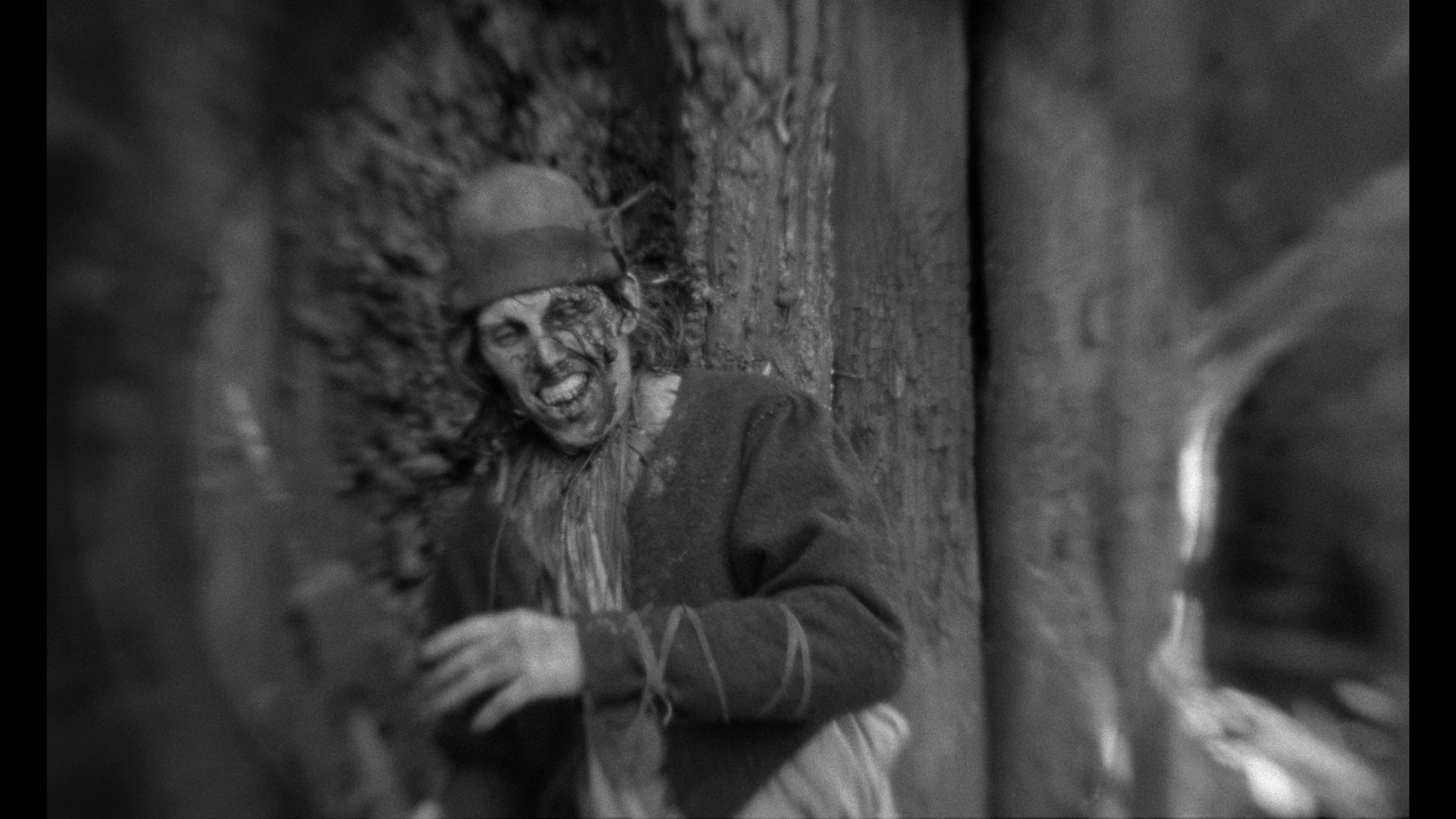 Like Rumata, the camera constantly wanders – moving forwards and sometimes retreating backwards. Early in the film, the camera wanders through the village, witnessing poverty, stupidity and filth. Snatches of conversations are often overheard: ‘He wanted to fuck the goose’; ‘It bites like a ferret’; ‘I found these under a pig’. The Earth scientists all wear a headpiece which contains a camera. Sometimes we see from the perspective of this camera, the centrepoint of the image exhibiting a profound clarity that bleeds into a vignetting effect – distortion towards all four edges of the frame. It’s an effect that is similar to that achieved by Roger Deakins’ ‘Deakinizer’, first used in the shooting of Andrew Dominik’s The Assassination of Jesse James by the Coward Robert Ford (2007). (Deakins achieved this effect by placing the front element from a lens with a smaller diameter over a 50mm lens, thus allowing him to place the centre of the image in focus and allow a dropping off of focus towards the periphery of the frame.) Characters occasionally look into the camera lens, sometimes talking to it. The usual distance between the audience and the film itself is thus shattered; the viewer is forced out of their usual position as a distant, isolated observer – something which mirrors the increasing involvement of Rumata (whose mission is to simply observe) in the affairs of Arkanar. Like Rumata, the camera constantly wanders – moving forwards and sometimes retreating backwards. Early in the film, the camera wanders through the village, witnessing poverty, stupidity and filth. Snatches of conversations are often overheard: ‘He wanted to fuck the goose’; ‘It bites like a ferret’; ‘I found these under a pig’. The Earth scientists all wear a headpiece which contains a camera. Sometimes we see from the perspective of this camera, the centrepoint of the image exhibiting a profound clarity that bleeds into a vignetting effect – distortion towards all four edges of the frame. It’s an effect that is similar to that achieved by Roger Deakins’ ‘Deakinizer’, first used in the shooting of Andrew Dominik’s The Assassination of Jesse James by the Coward Robert Ford (2007). (Deakins achieved this effect by placing the front element from a lens with a smaller diameter over a 50mm lens, thus allowing him to place the centre of the image in focus and allow a dropping off of focus towards the periphery of the frame.) Characters occasionally look into the camera lens, sometimes talking to it. The usual distance between the audience and the film itself is thus shattered; the viewer is forced out of their usual position as a distant, isolated observer – something which mirrors the increasing involvement of Rumata (whose mission is to simply observe) in the affairs of Arkanar.
The film, presented here, is uncut and runs for 177:22 mins.
Video
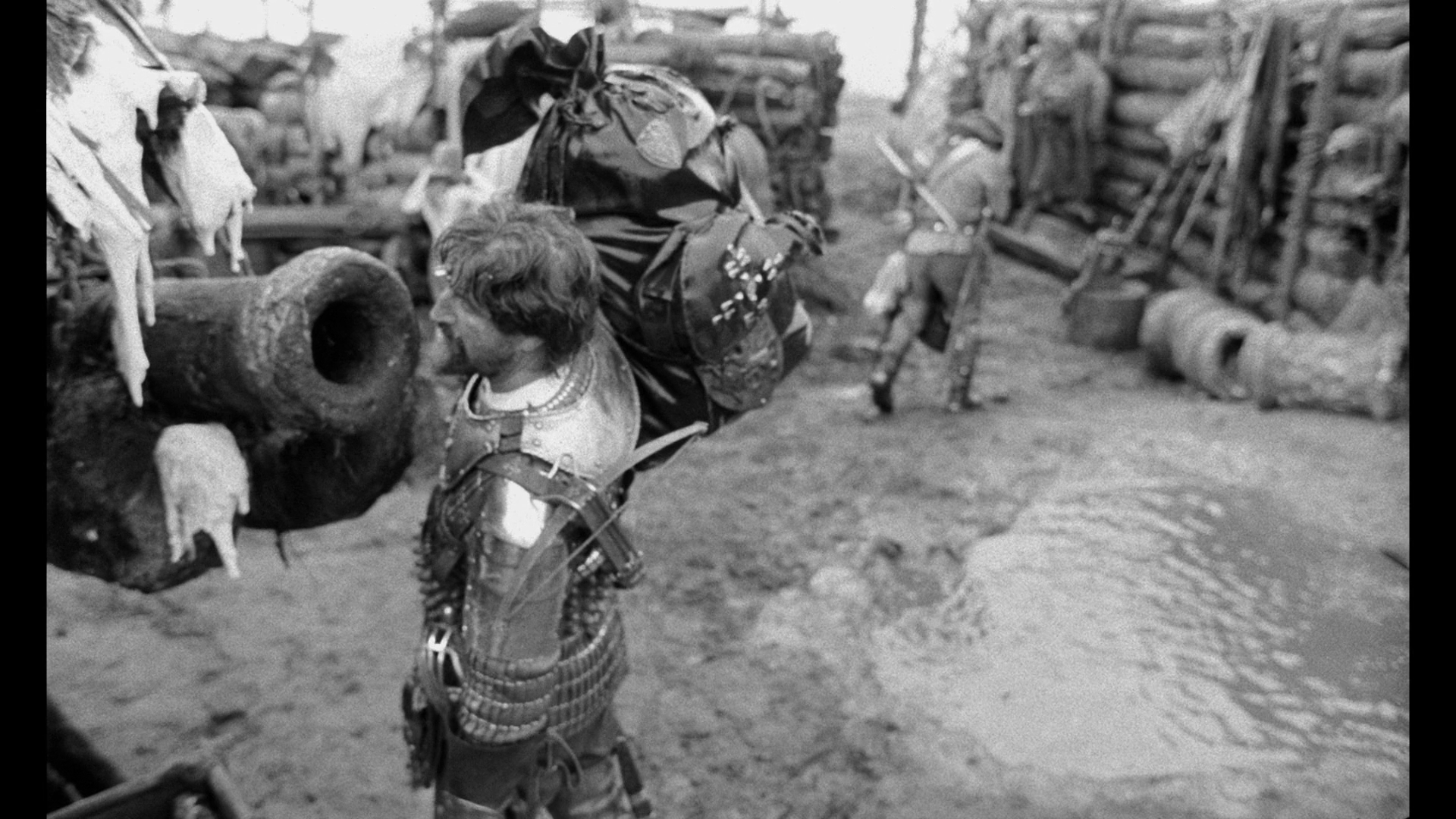 Presented in its intended aspect ratio of 1.66:1, the 1080p presentation of the film takes up almost 40Gb of space on a dual-layered Blu-ray disc. The 35mm monochrome photography looks absolutely amazing in this presentation. Contrast levels are superb, delivering a beautifully balanced image that, in terms of its rich shadows and strong mid-tones, resembles that old staple of photojournalistic photography of the 1950s and 1960s, Kodak’s Tri-X. The often handheld camera frequently finds its view of the action diffused by smoke and dust, and in this presentation every particle seems to be visible with the subtle movements of the smoke used on the set captured. There’s an excellent level of detail present throughout, and a superb encode ensures that the presentation has the appearance of 35mm film – or as close to it as a digital simulacrum will allow. Presented in its intended aspect ratio of 1.66:1, the 1080p presentation of the film takes up almost 40Gb of space on a dual-layered Blu-ray disc. The 35mm monochrome photography looks absolutely amazing in this presentation. Contrast levels are superb, delivering a beautifully balanced image that, in terms of its rich shadows and strong mid-tones, resembles that old staple of photojournalistic photography of the 1950s and 1960s, Kodak’s Tri-X. The often handheld camera frequently finds its view of the action diffused by smoke and dust, and in this presentation every particle seems to be visible with the subtle movements of the smoke used on the set captured. There’s an excellent level of detail present throughout, and a superb encode ensures that the presentation has the appearance of 35mm film – or as close to it as a digital simulacrum will allow.
NB. Some larger screen grabs are included at the bottom of this review.
Audio
The film is accompanied by a DTS-HD Master Audio 5.1 track (in Russian, naturally). The film’s sound design could perhaps best be described as ‘crowded’ – as could the film’s photography. This track is clean and clear, demonstrating good range that is evident in the early scene which features the hissing and bubbling of an alchemist’s workshop. Optional English subtitles are provided. These are clear, readable and grammatically correct – representing a noble attempt to translate the dialogue, which as Michael Brooke says in the interview on this disc is characteristic of German’s work in its intricacy of presentation if not content – often overlapping, and frequently allowing the viewer access to little more than snatches of conversations. Translating, and presenting, this information in a manner that doesn’t confuse a non-Russian speaker must have been quite a task, and Arrow have achieved it admirably.
Extras
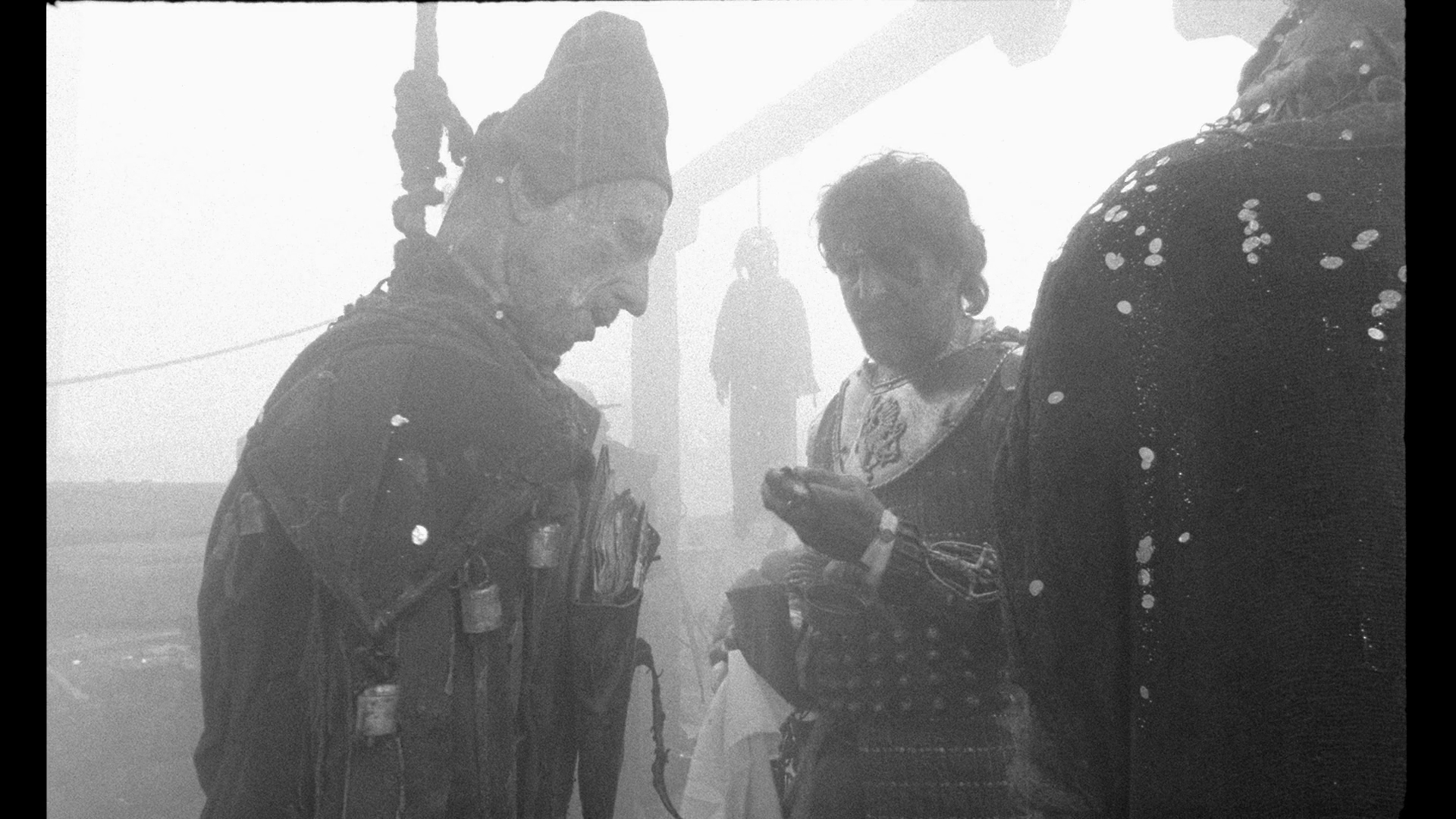 The disc includes the following: The disc includes the following:
- Introduction by Svetlana Karmalita (15:22). This introduction to the film, by German’s wife and co-writer, offers a personal account of the genesis of the film. This is in Russian with English subtitles. - Interview with Aleksei German Jr (10:01). This fascinating short interview with German’s son, also a filmmaker, was recorded at the 2015 Berlin International Film Festival. German says that with Hard to be a God, his father was ‘trying to move away form his wartime childhood and youthful recollections’ – which had dominated his earlier pictures. He describes his father’s final picture as ‘a cautionary film’ of ‘what might happen in the post-Soviet space’. Offering some insight into his father’s worldview, German says that his father ‘saw Fellini as a realist and Bergman as a romantic. So he felt that a more grotesque style came closer to a profounder perception of life and truth than anywhere else’. Hard to be a God, German says, was made by his father ‘for people who are still seeking and haven’t given up’. German also talks about the unique characteristics of Russian cinema, arguing that it is dominated by longer takes and that ‘Russian cinematic traditions are less about editing’. Russian cinema, he also says, tends to be fascinated by the past because ‘[i]n Russia, it’s always easier to shoot the past’ owing to the fact that ‘present-day Russia is vague’ and hard to understand. German also talks about the work that needed to be done to complete the film after his father’s death in 2013. The interview is in Russian with English subtitles. - ‘History of the Arkanar Massacre’ (28:28). This is another excellent interview, this time with Daniel Bird. Bird offers his characteristically detailed comments in relation to the history and development of the film that became Hard to be a God. He begins by asserting that Hard to be a God is the ‘apotheosis’ of German’s career – a career which, despite the small number of films that German made, has a great significance within the Russian filmmaking tradition. Where German’s previous films were all about the Stalinist period, Hard to be a God offers ‘an abstraction’ – but Bird suggests that the film is clearly ‘a parable’ about fascism and Stalinism. The Greys and Blacks, Bird argues, are clearly intended to represent the Sturmabteilung/Brownshirts and the SS of Nazi Germany, and the character of Don Reba has parallels with Lavrentiy Beria, the chief of the NKVD under Stalin. Discussing the film’s similarities with Shakespeare’s Hamlet, Bird spends some time talking about the fllm’s literary origins and provides an overview of the work of the Strugatsky brothers and its relationship with the work of Stanislaw Lem, arguing that both may be compared with the American author Philip K Dick. In fact, Bird argues, in its treatment of fascism Hard to be a God has some strong parallels with Dick’s 1962 novel The Man in the High Castle. Bird talks about the controversies surrounding German’s films in Russia and the perpetual delays that German experienced in bringing the Strugatsky’s novel Hard to be a God to the big screen, including the Russian invasion of Czechoslovakia in 1968, the production of Peter Fleischman’s adaptation of the book in 1989, and the prolonged production of German’s Khrystalyov, My Car (1998). Bird continues by comparing Hard to be a God with a number of other fims, including those by Tarkovsky and Zulawski. - ‘The Unknown Genius’ (34:00). In a snazzily-edited piece-to-camera, Michael Brooke provides us with an overview of the work of Aleksei German whose, as Brooke suggests, is sadly underexposed in the UK – other than a one-off screening of Trial on the Road on UK television, when it wasn’t unheard of for the mainstream channels to show something other than ‘shiny floor’ programming, ‘reality’ shows and endless broadcasts of the latest Hollywood pictures. Surprisingly, as Brooke notes, Hard to be a God is the first release of a film by German on UK home video! Brooke discusses in detail the development of German’s career, with a particularly interesting focus on the specific techniques associated with German (including his multi-layered approach to sound design and dialogue). It’s an impressively-researched, detailed discussion of Hard to be a God within the framework of German’s other films. - Trailer (1:56). - Stills gallery. Retail copies also include reversible sleeve artwork and a forty-four page booklet that’s illustrated with some beautiful still images from the film (nearly every composition is worth of being framed, to be honest), an interview with Aleksei German and an essay by Jonathan Romney.
Overall
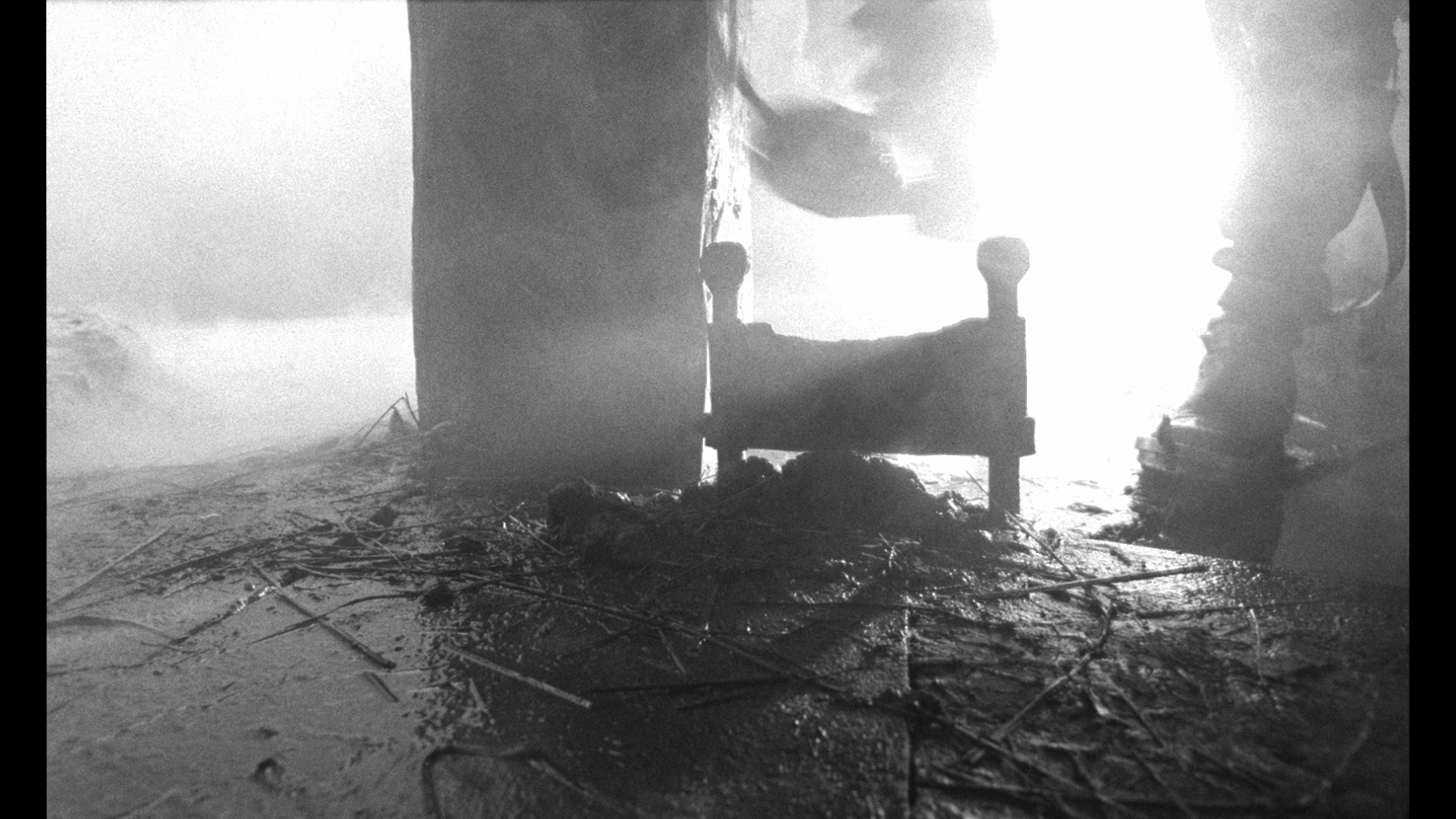 Hard to be a God is a fascinating film, the culmination of German’s career. Whether or not it’s the ‘apotheosis’ of German’s body of work, as Bird suggests, is perhaps something that only time will tell – but the film is particularly interesting for the way in which it deviates from the reality of German’s previous films, instead presenting an abstract world, whilst retaining their incisive critique of totalitarianism. The parallels between the depiction of the Stalinist era in German’s previous films and the repressive Kingdom of Arkanar are all too clear, but as some commentators have suggested the film perhaps has an equal relevance for Putin’s Russia. Certainly, there’s much food for thought within the picture, and German’s point-of-view is an uncompromising, insistent one. Hard to be a God is a fascinating film, the culmination of German’s career. Whether or not it’s the ‘apotheosis’ of German’s body of work, as Bird suggests, is perhaps something that only time will tell – but the film is particularly interesting for the way in which it deviates from the reality of German’s previous films, instead presenting an abstract world, whilst retaining their incisive critique of totalitarianism. The parallels between the depiction of the Stalinist era in German’s previous films and the repressive Kingdom of Arkanar are all too clear, but as some commentators have suggested the film perhaps has an equal relevance for Putin’s Russia. Certainly, there’s much food for thought within the picture, and German’s point-of-view is an uncompromising, insistent one.
The presentation of the film on this Blu-ray release is excellent, and the film itself is accompanied by some excellent contextual material that both engages with Hard to be a God in depth and looks more generally at Aleksei German’s career on the whole. As Michael Brooke suggests in his piece on German’s career, it’s sad that British mainstream television now shuns the broadcast of pictures such as those by German; however, perhaps the apparent success of Hard to be a God will spur more companies (and/or broadcasters) to explore German’s back catalogue. Regardless, Arrow’s release of this particular film is pretty much an essential purchase. 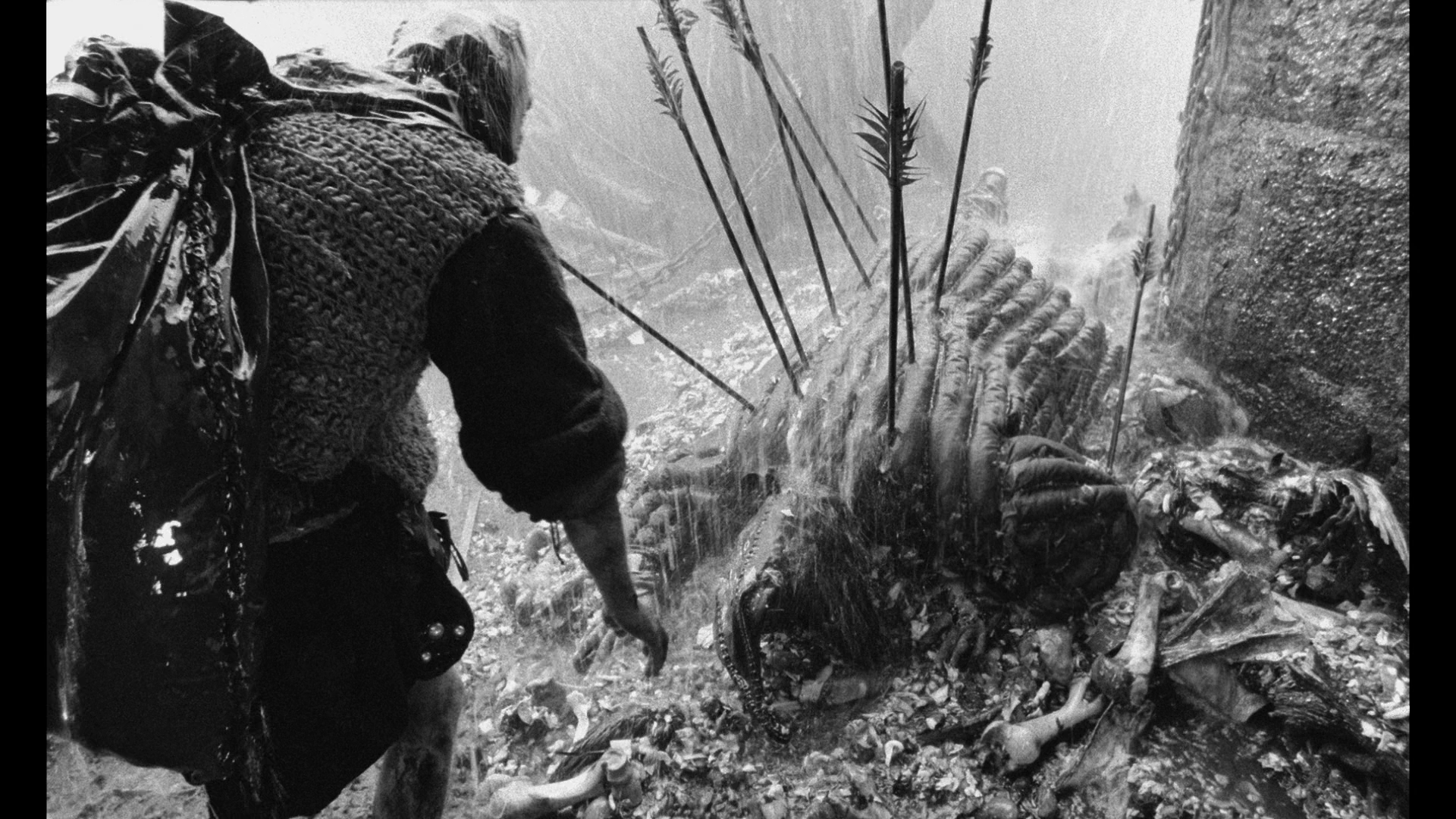
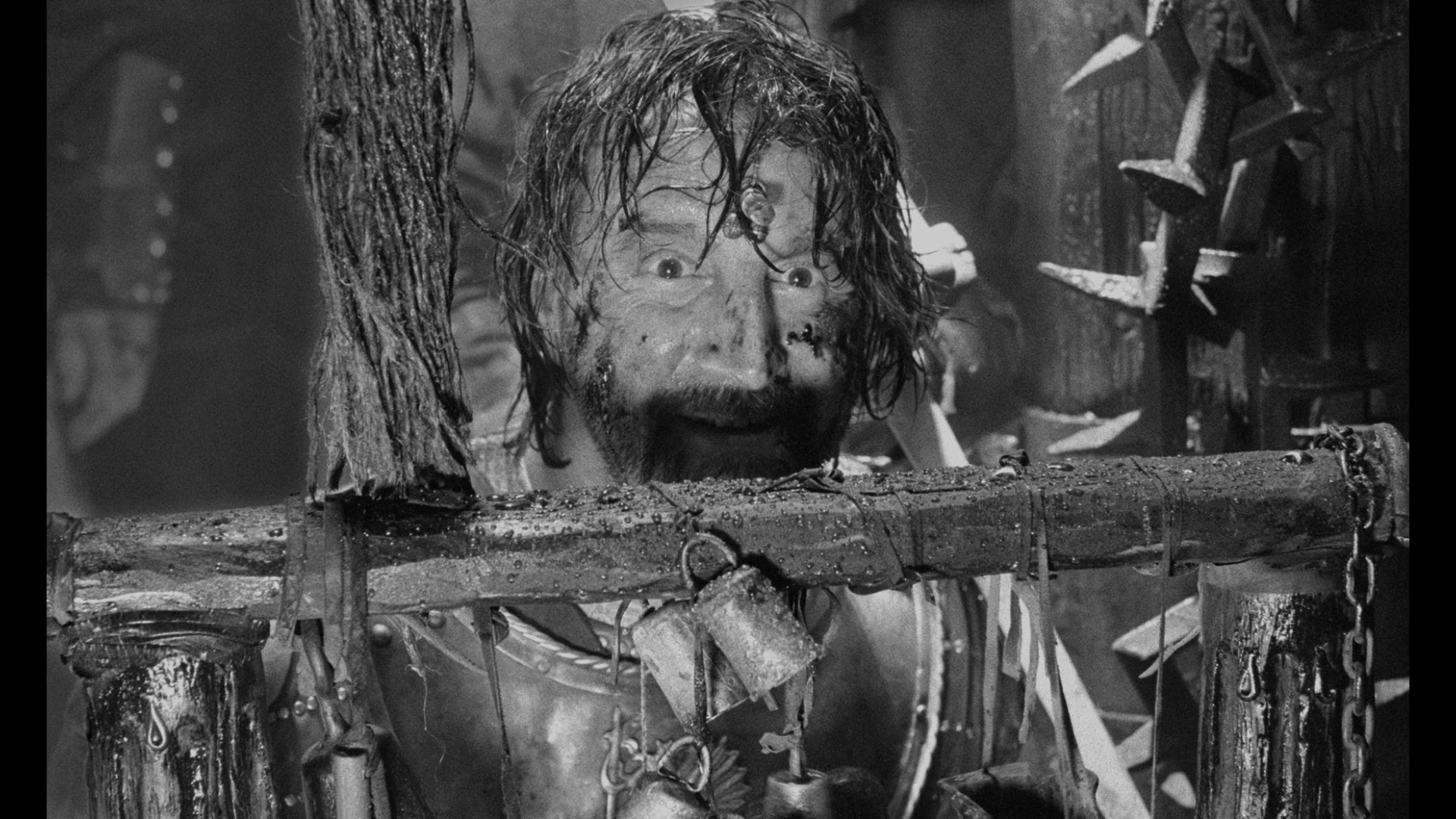
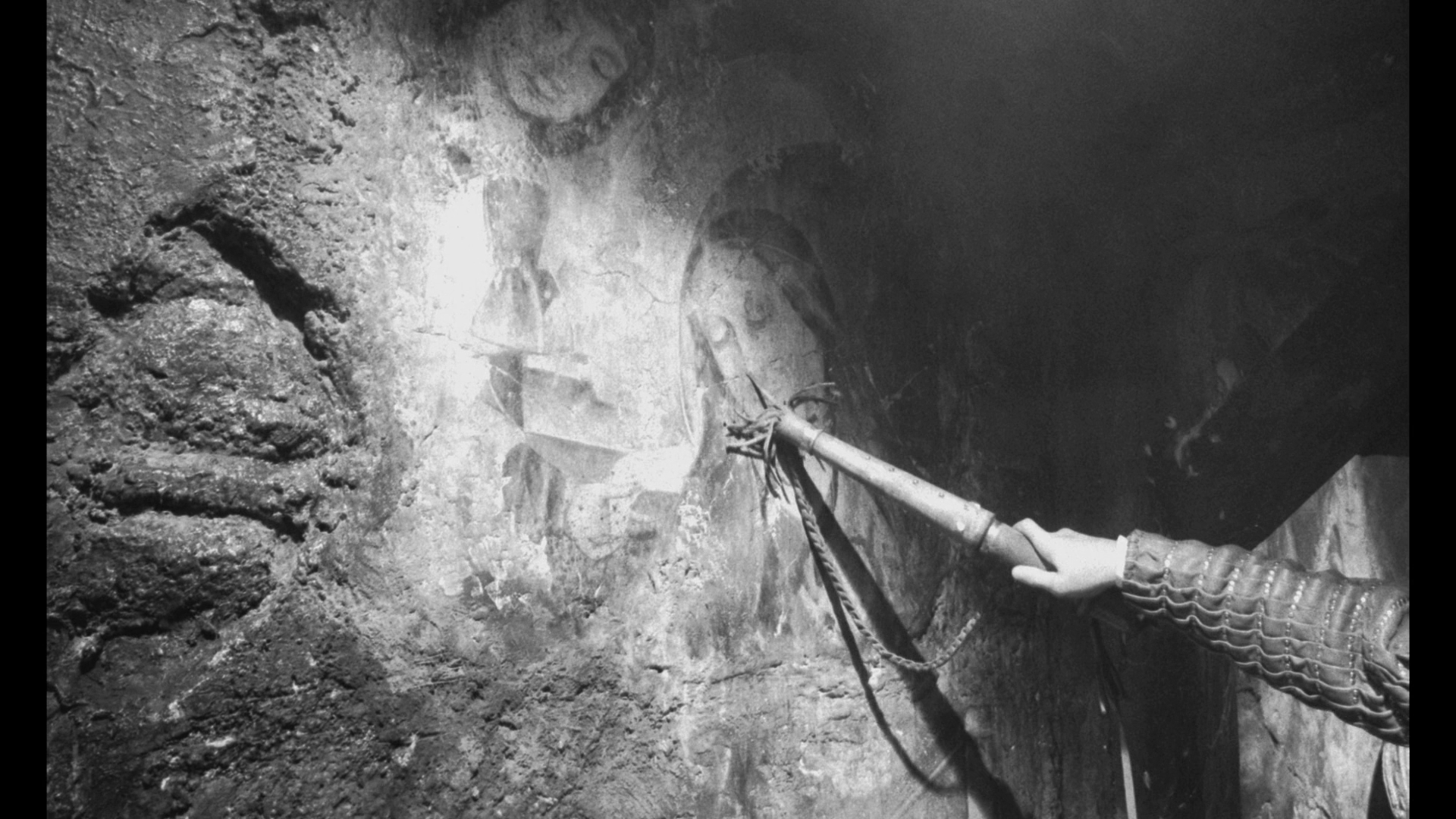
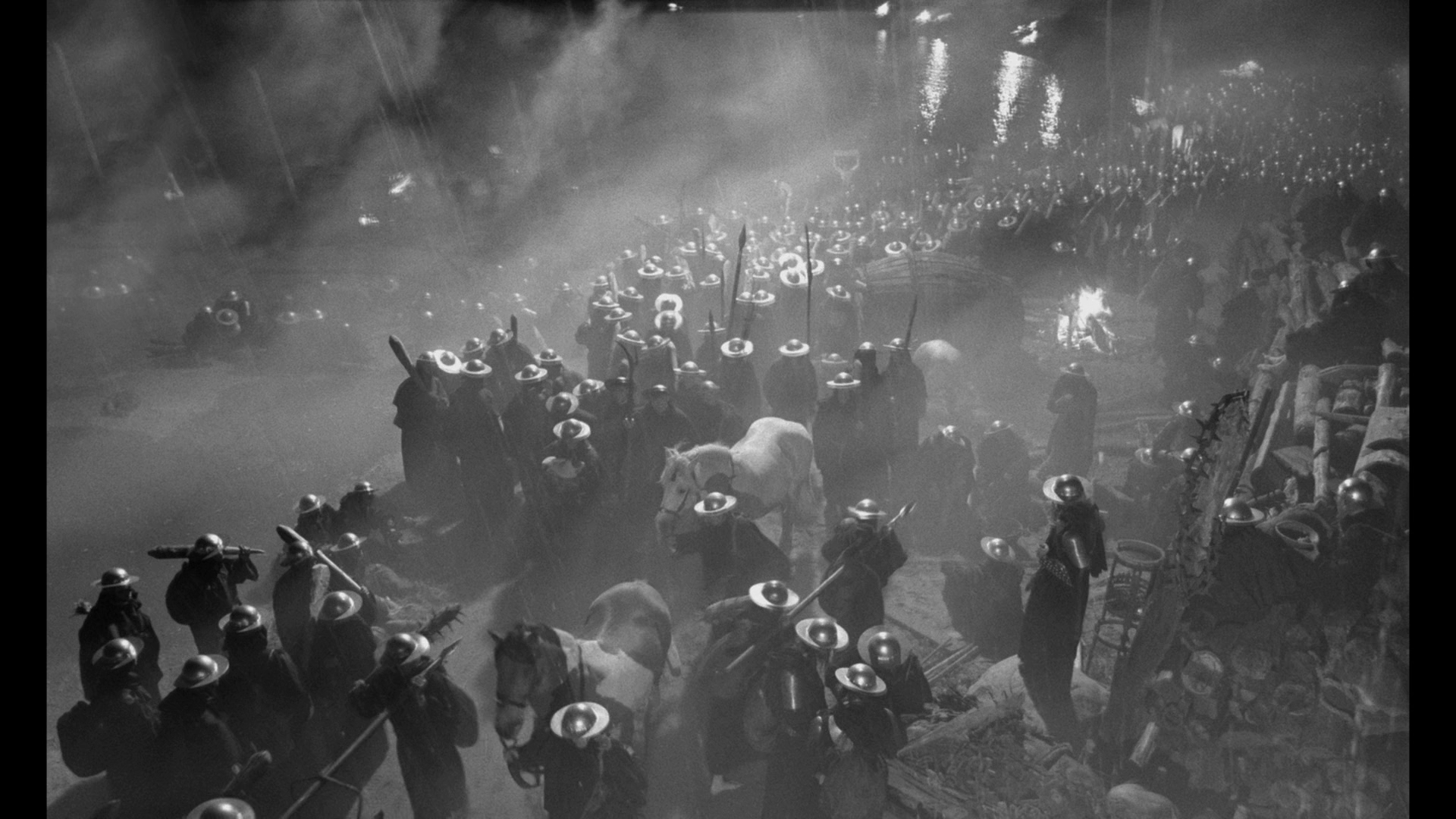
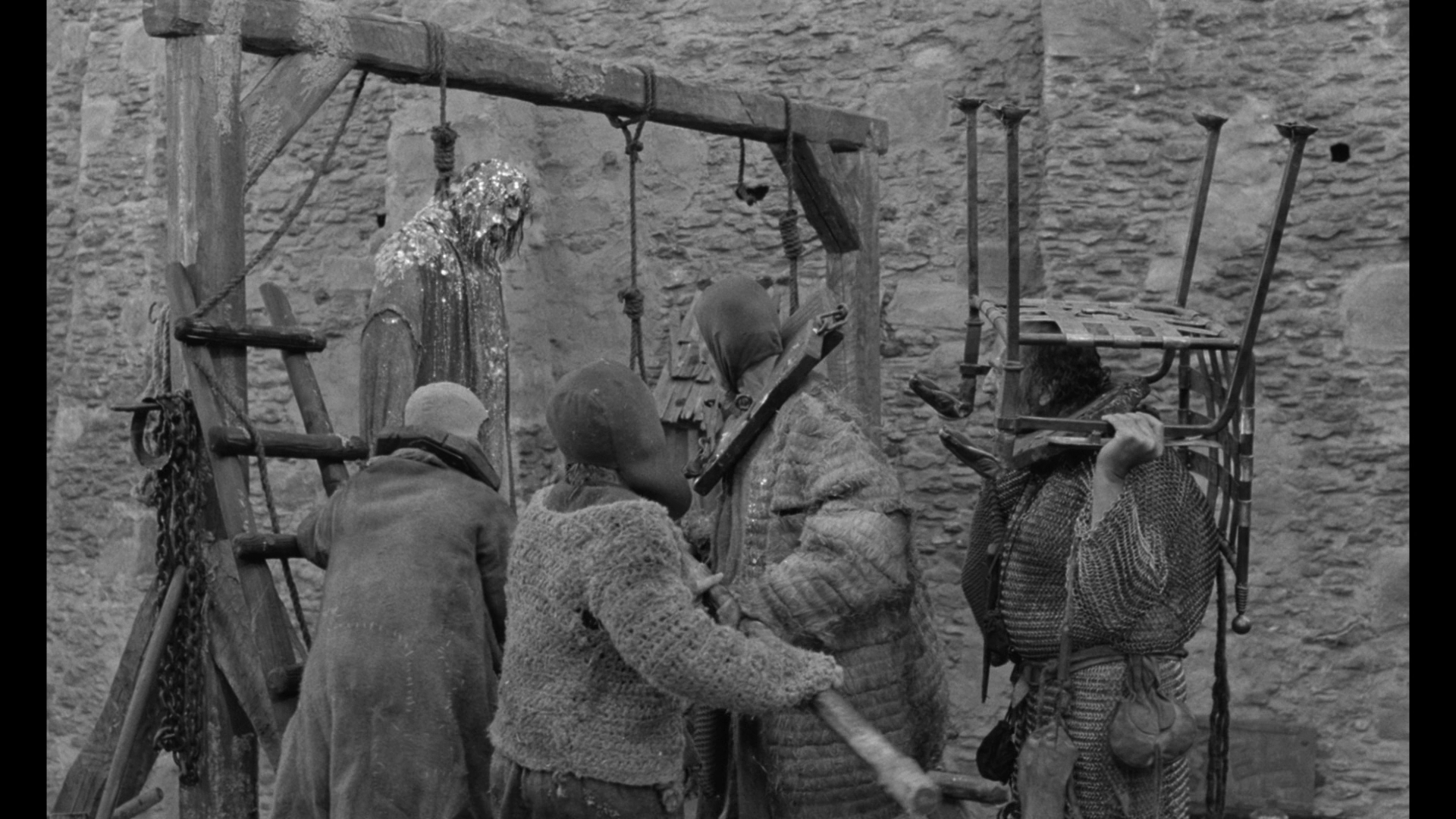
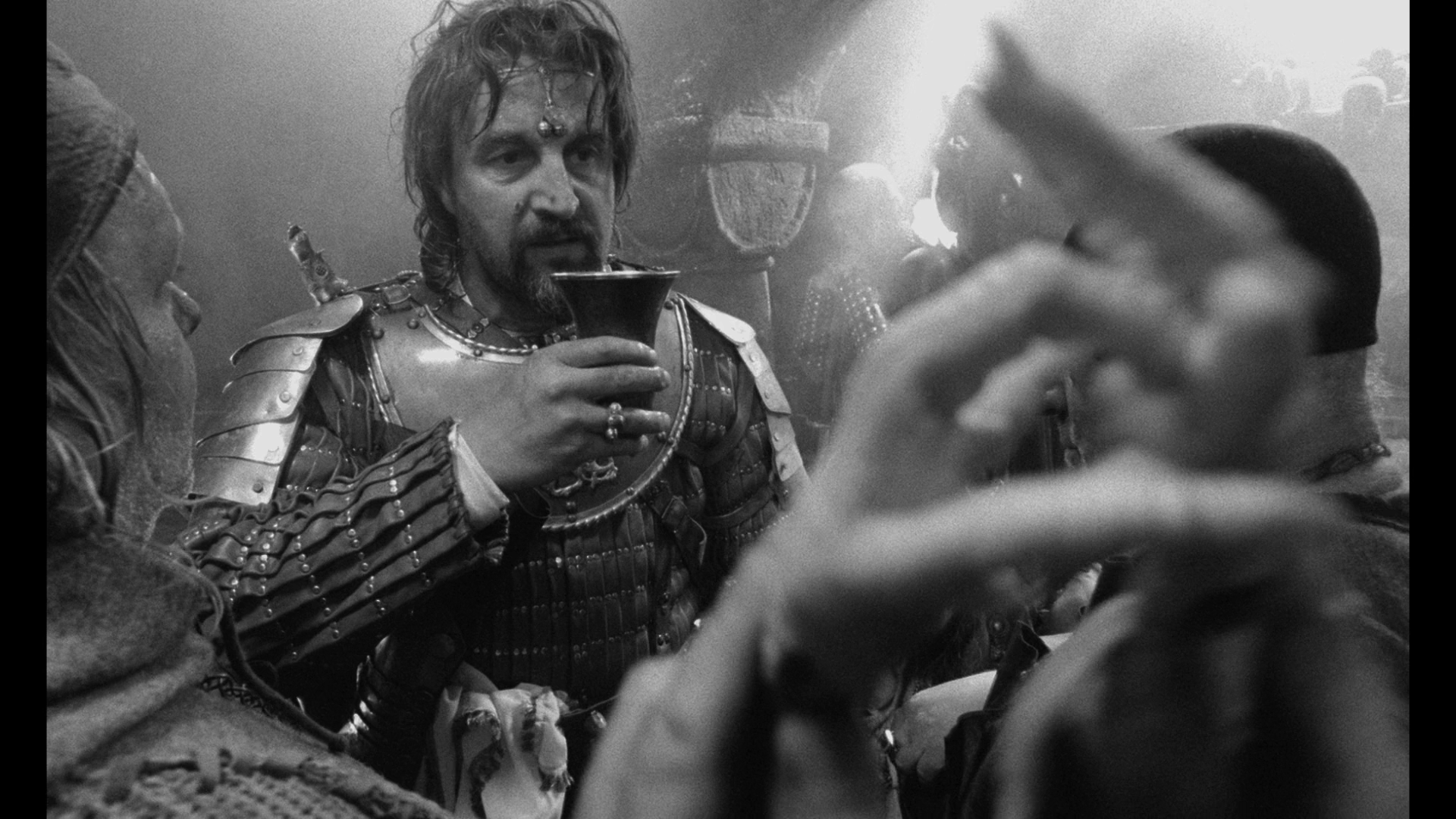
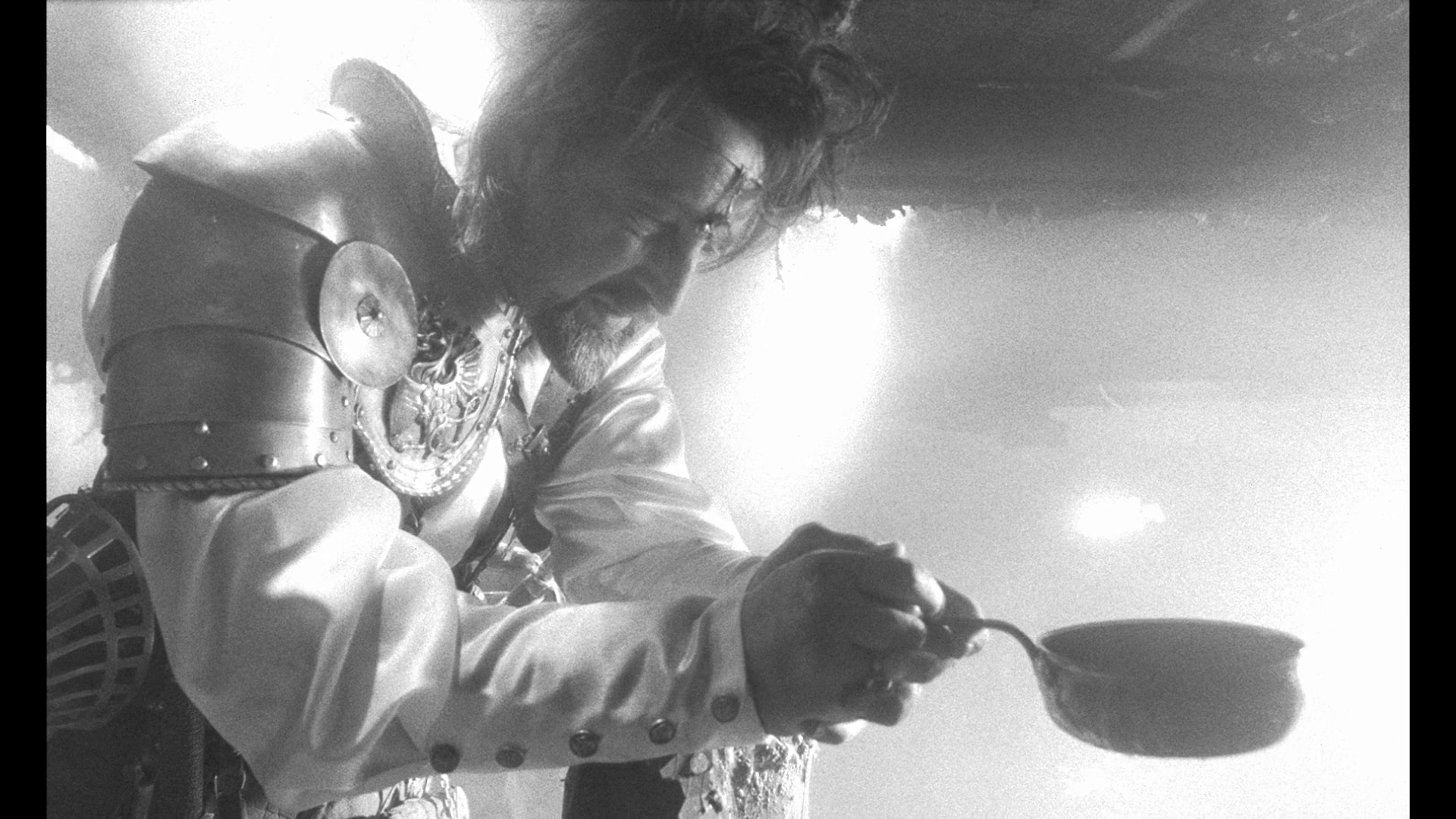
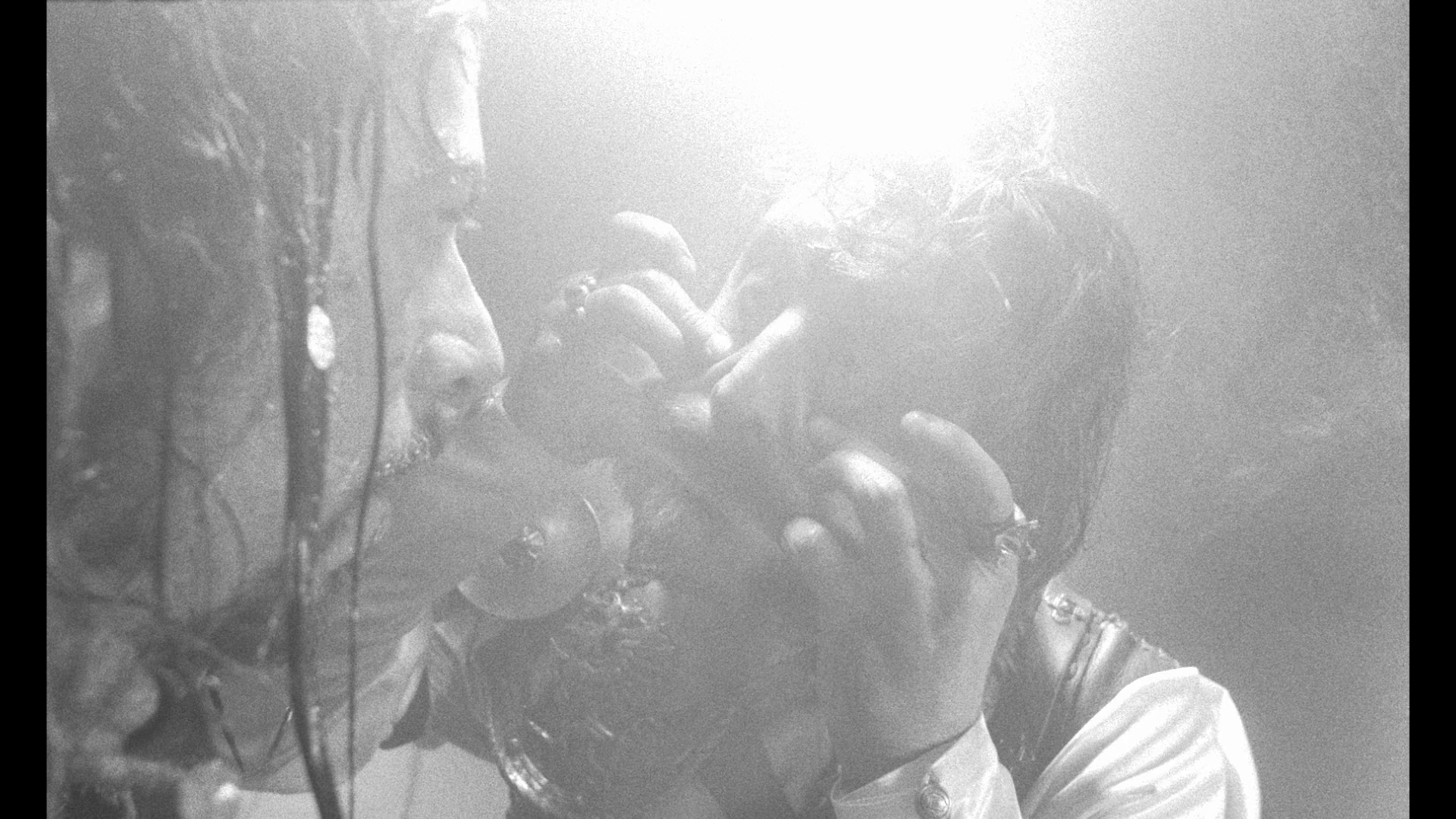
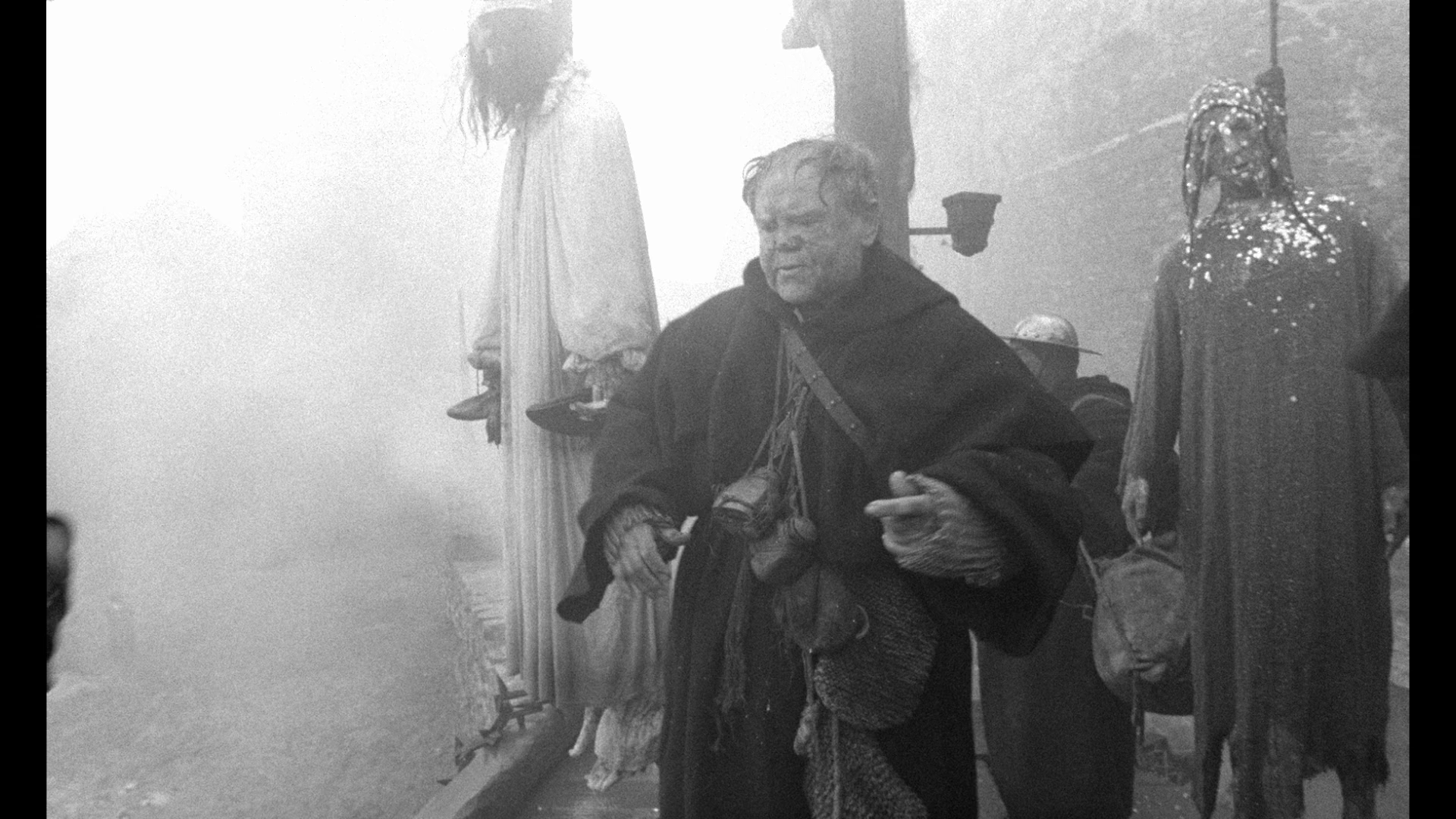
|
|||||

|